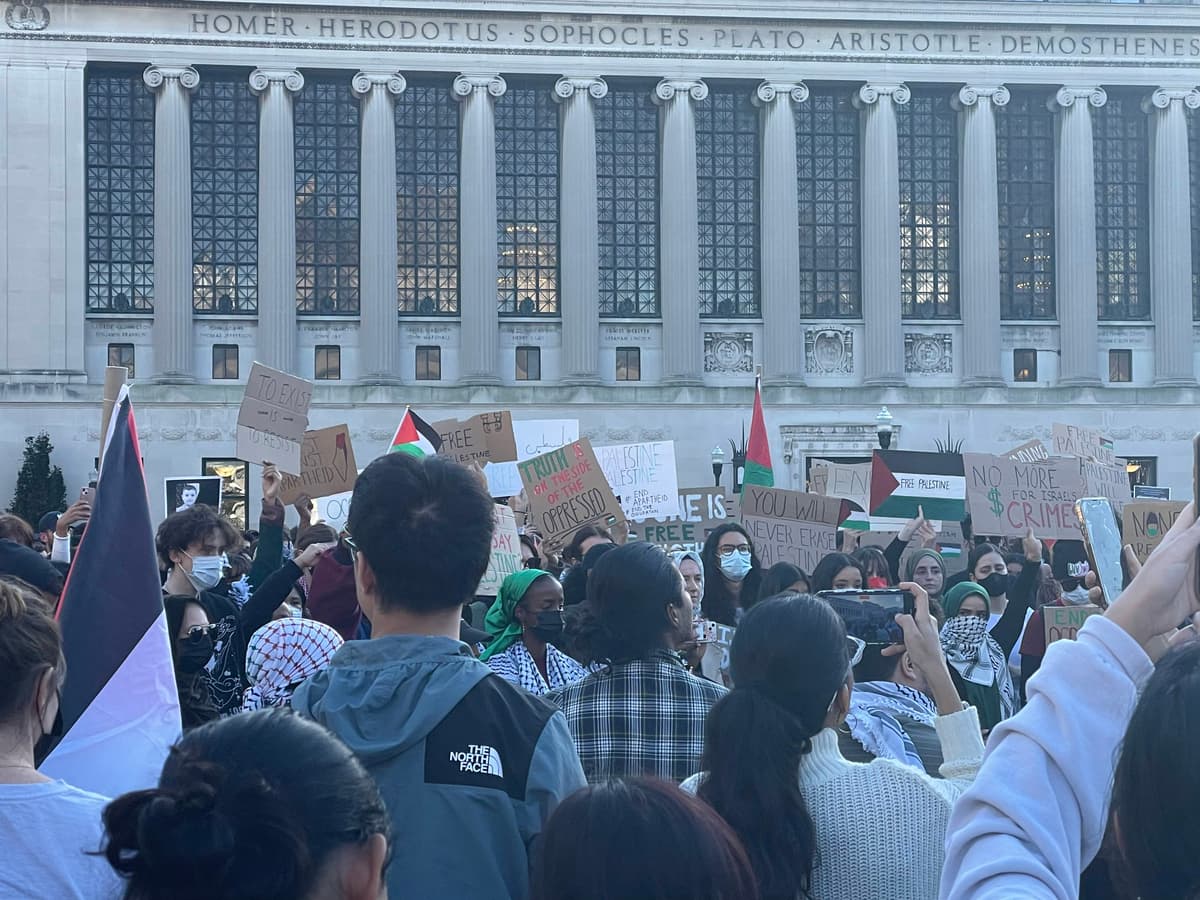A Chasm Emerges at Columbia as Competing Rallies Gather — One Celebrating the Massacre of Jews Perpetrated by Hamas and One in Solidarity With Israel
If college campuses are a microcosm of society, then what happened at Morningside Heights does not bode well.

The crisp fall air bristles with tension as two large groups begin to form on Columbia University’s main campus Thursday evening for competing rallies — one organized by Students for Justice in Palestine, the other for Students Supporting Israel and the wider Jewish community at Columbia.
Please check your email.
A verification code has been sent to
Didn't get a code? Click to resend.
To continue reading, please select:
Enter your email to read for FREE
Get 1 FREE article
Join the Sun for a PENNY A DAY
$0.01/day for 60 days
Cancel anytime
100% ad free experience
Unlimited article and commenting access
Full annual dues ($120) billed after 60 days

